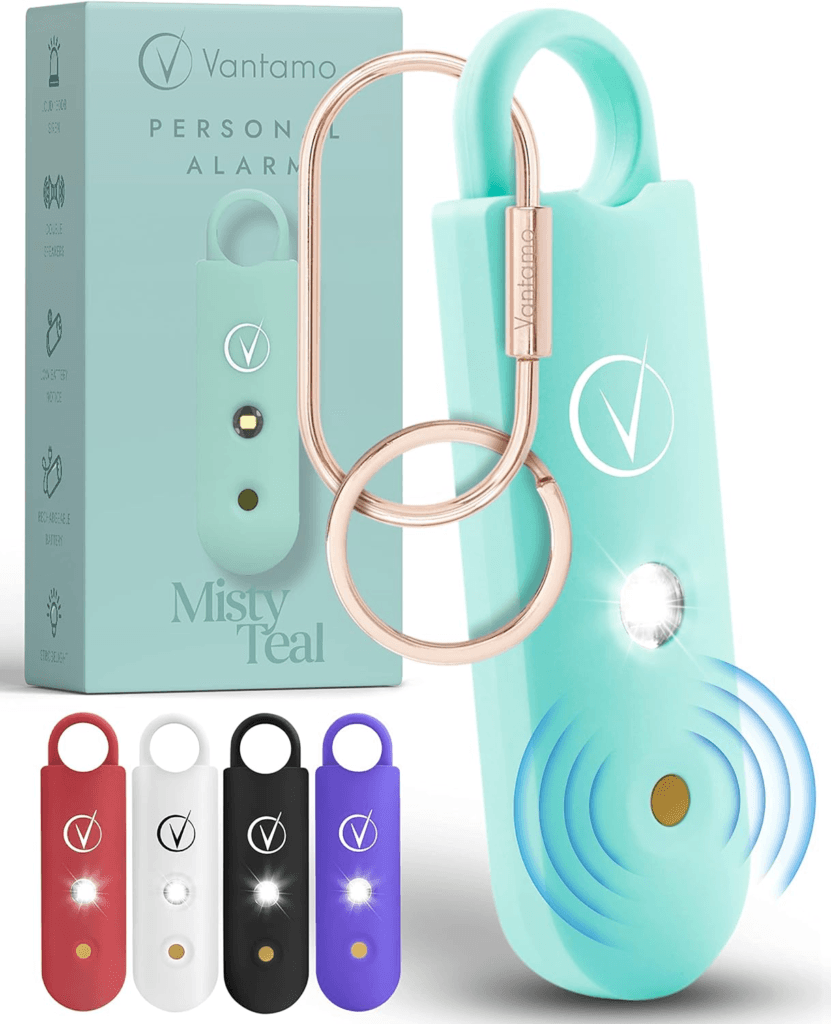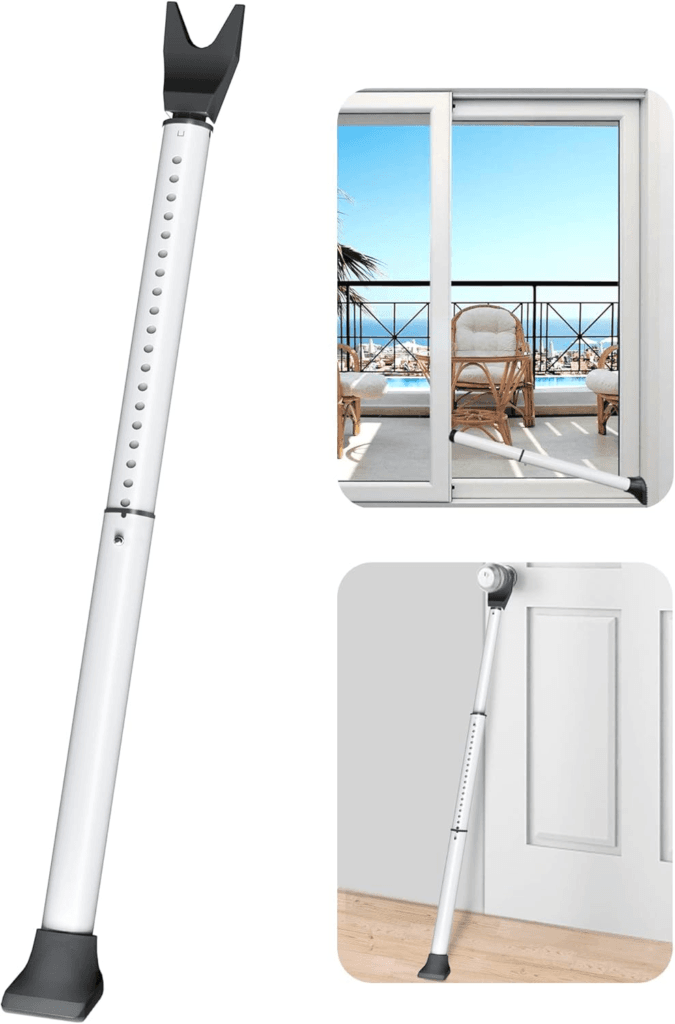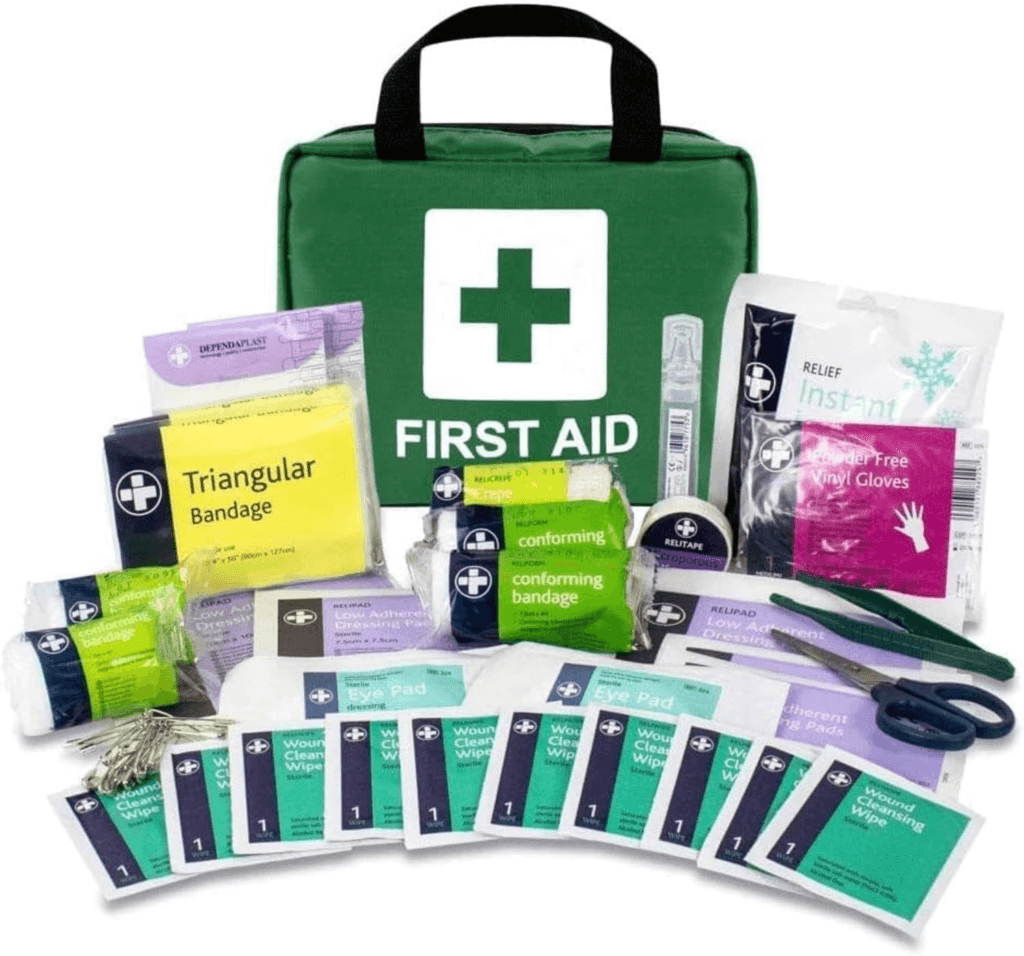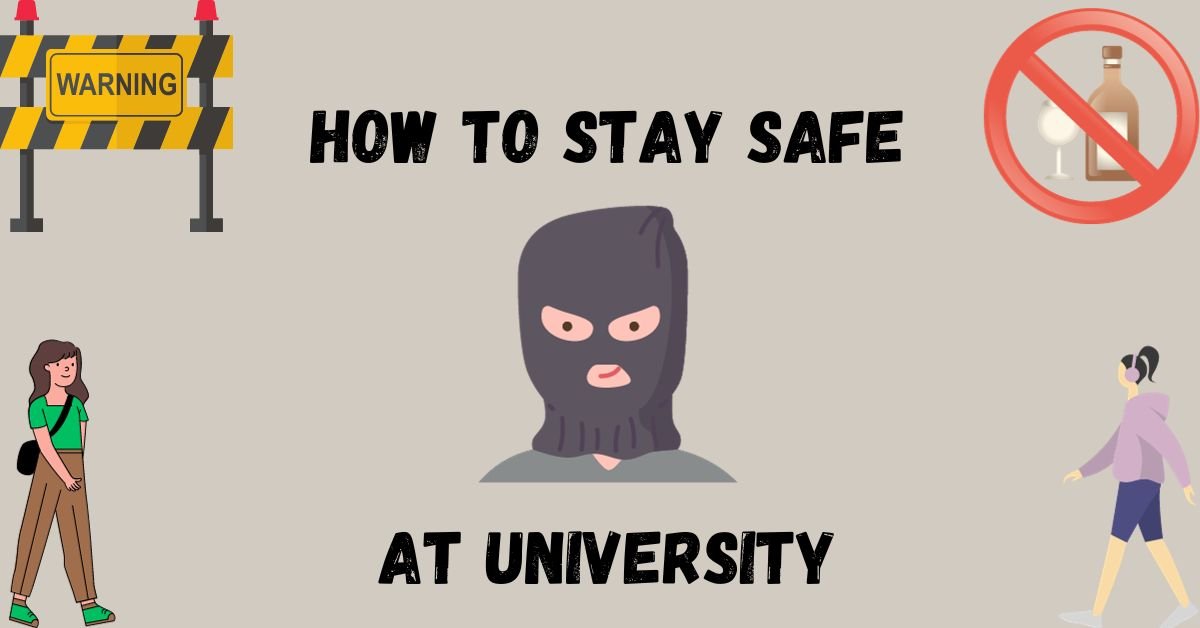Disclosure: The Graduate Samaritan is a free independent blog supported by its readers; this post may contain affiliate links that may earn a tiny commission to help the blog sustain itself, thank you for supporting this independent blog! (full disclaimer here)
Starting university is an exciting milestone — a fresh start, independence, and new friends. But as you embrace student life, it’s equally important to prioritise your personal safety first time away from home navigating life as independent adults.
University is full of new experiences, but without preparation, it’s easy to underestimate certain risks. Unfortunately, some people may take advantage of students’ inexperience!
This guide provides practical, research-backed advice to help you stay safe at university on nights out, in accommodation, and online — so you can enjoy uni life with confidence.
🌃 How to Stay Safe on Nights Out at University: Tips Every Student Should Know
University nightlife is a highlight for many students, but safety should always come first! According to Student Minds UK, awareness and planning are key to avoiding risky situations.
To make sure you have fun while staying safe on university nights out, here are some essential tips for your next night out.
🗺️ Plan Your Route Before Going Out
Planning your route ahead of time is crucial when you’re heading out. Whether you’re walking to a bar or club, use Google Maps to plan a safe route and avoid shortcuts through unlit or unfamiliar areas (parks, tunnels, or deserted streets).
Instead, stick to busy, well-lit streets and areas with more foot traffic, like those lined with shops, restaurants, and bars. While it might take longer, these areas are safer because they tend to be more populated.
If you’re new to the city, ask your university accommodation office or local students which areas to avoid after dark.
👯 Go Out with Friends
It can be hard to find a group of friends to go out with, especially if you’re new to the university. But whenever possible, try to go out with other students, groups make you less of a target and deter unwanted attention.
If you’re meeting new people, agree to check in with each other during the night — and never leave a friend behind. Having said so, always beware of people you don’t know or just met, even if they are students like you
📱 Always Stay Connected
If you absolutely have to go out by yourself, make sure your phone is fully charged before heading out. Save a local taxi number (or use Uber/Bolt) and share your live location with a trusted contact via WhatsApp or iMessage.
Tip: Enable Emergency SOS on your phone — it can call local authorities automatically if you’re in danger.
🍹 Watch Your Drink
Drink spiking incidents in the UK have risen in recent years (BBC News). Always keep your drink in your hand, never ever leave it unattended and don’t accept drinks from strangers.
💡 Recommended: take an anti-spike drink cover with you at all times, whether you’re planning to go to a club, a quiet bar or a flat party.

🚕 Getting Home Safely After A Night Out
The golden rule: never walk home alone at night. Plan your transport in advance, and if possible, pre-book a taxi. Many universities partner with safe taxi schemes, allowing students to ride even if they’ve lost their wallet.
If public transport is your only option, wait in well-lit, populated areas. Try to avoid waiting alone at a bus or subway station late at night by timing your arrival with the next train or bus.
💎 Avoid Becoming a Target
Be mindful of your valuables when heading out, especially late at night. Avoid displaying expensive jewellery, flashy watches, or phones. These can make you a target for thieves!
Keep valuables in zipped, inner pockets. If using a handbag, wear it across your body or under a coat to reduce the risk of snatching.
💡 Recommended: consider getting a anti-theft phone strap/lanyard to deter phone snatching.

🚶♀️ How to Stay Safe Walking Home Alone
Sometimes, walking alone is unavoidable — perhaps after a night bus or late lecture. If that happens, stay alert and confident.
- 👟 Wear comfortable shoes – We know, you might be tempted to rock the heels for a night out, but if you know you’ll be walking back afterward, consider stashing a pair of flats or sneakers in your bag. It could make a world of difference if you need to move fast!
- 🎧 Avoid wearing both earphones – You need to be aware of your surroundings. Hearing people or vehicles approaching can give you that extra bit of time to react if needed.
- 📞 Stay Connected – Call or text a friend or family member and let them know where you are and where you’re heading. If you can’t make a call, pretend you’re talking to someone – a little “I’m walking back from the bus stop, heading home now” can keep you feeling safer.
- 🚨 Carry a personal alarm – small, affordable, and effective for drawing attention in emergencies.
When you’re walking, keep a steady pace and look purposeful. Try not to look lost or distracted, as that can make you seem more vulnerable. If you do pass someone or a group, avoid eye contact – it’s just safer that way.
If someone approaches you, stay calm, and simply say “no thanks” while continuing on your way without stopping. Don’t break your stride. Looking confident and focused can be a great deterrent.
If someone makes you uncomfortable, cross the street, head to a populated area, or enter a nearby shop or takeaway if open. Trust your instincts — they’re your best defence.
🏠 Safety Tips for Students in Halls & Shared Flats
Living independently is exciting, but it comes with responsibility. Whether you’re in on-campus halls or a shared flat, these safety habits can make a huge difference.
🏫 On-Campus Accommodation
- Familiarise yourself with campus security offices and their contact numbers.
- Note the location of the nearest pharmacy and 24-hour assistance points.
- Avoid isolated paths or poorly lit shortcuts late at night.
- Don’t let strangers “tailgate” into your building — it’s okay to politely close the door behind you.
🏙️ Off-Campus Housing
- Learn your neighbourhood layout and identify safe local spots like shops and cafes open late.
- Save emergency contacts like the police (999), NHS 111, and campus security in your phone.
- Install a door viewer or chain lock if possible (ask your landlord first).
💳 Protect Valuables and Documents
- Keep passports, bank cards, and electronics out of sight.
- Always lock your room, even if you’re stepping out briefly.
- Never share passwords or banking details with anyone, even friends.
🔒 UK police report that many student thefts occur from unlocked rooms — small habits prevent big losses.
🥳 Flat Parties & Alcohol Awareness
Flat parties are a staple of university life, but they often come with a lot of alcohol, and sometimes peer pressure. The NHS Alcohol Guidelines recommend no more than 14 units per week, spread over several days.
Pace yourself, drink water between rounds, and never feel pressured to drink more than you’re comfortable with. Remember — true friends respect your limits.
It’s easy to feel like you have to keep up, but everyone has a different tolerance to alcohol, and there’s no need to prove anything to anyone.
Staying safe at university is also about setting boundaries—stick to what feels right for you, and if you need to, take a break from drinking.
🧰 Must-Have Safety Items for University Students
Preparation builds confidence. These practical safety tools can give you extra peace of mind and make a difference in an emergency:
(p.n. all links to Amazon UK)
– Personal Alarm – Loud Siren

This pocket-sized device can be a real lifesaver in an emergency. With the press of a button, this personal alarm emits a loud, attention-grabbing sound, making sure help arrives when you need it most.
– Tile Mate – GPS Tracker

Lose your keys or bag? No problem! Attach a Tile Mate to your essentials and use the app to track them down instantly. Important: in the case of theft, do not ever attempt to recover your items by yourself, instead get in touch with police and/or campus security!
– Power Bank – Slim & Portable

Nothing’s worse than your phone dying when you’re out and about. Keep a portable power bank with you to stay connected, whether you need to call a cab, message a friend, or just find your way home.
– Indoor Security Camera – With Night Vision

When you’re not around, your valuables need some protection. An indoor security camera can give you an extra layer of security and peace of mind when you’re out of the room or away for the weekend.
– Door Stop Alarm – Simple and Efficient

For those extra safety-conscious moments, a door stop alarm is a must. Simply place it under your door, and if someone tries to force entry, it will trigger a loud alarm. Perfect for students in shared housing or unfamiliar places! p.n. check if this is allowed in your accommodation
– Door Security Bar – Extra Protection

If you are feeling unsure about the security of your room or temporary accommodation, a door security bar adds an extra level of protection, so you can sleep soundly no matter where you are. (p.n. check if this is allowed in your accommodation)
– First Aid Kit – Basic

A small first aid kit with essentials like plasters, antiseptics, and painkillers can be a real lifesaver. Whether it’s a paper cut or a sprained ankle, having these basics on hand can save the day.
❓ FAQs About Staying Safe at University
Avoid walking alone at night if possible. If it’s unavoidable, call someone while walking or use a live location-sharing app to let a friend track your route.
Keep your drink in hand at all times and avoid accepting drinks from strangers. Drink covers and spiking test kits are additional tools to consider.
Both can be safe if you take precautions. Student halls often have campus security, while private flats offer more independence.
999 – Emergency (Police, Fire, Ambulance)
101 – Non-emergency police
111 – NHS advice line
Campus Security
Trusted friend or family contact
Consider downloading apps such as:
What3Words – share your exact location
bSafe – send live SOS alerts
Hollie Guard – tracks your route home and alerts contacts
🌈 How to Stay Safe at University, Final Thoughts: Balancing Fun and Safety
Staying safe at university doesn’t mean missing out. With a little preparation, awareness, and the right tools, you can reduce risks and focus on making the most of this exciting chapter of life.
University is about growing, learning, and discovering yourself — just remember, staying safe at university is part of independence. Look out for your friends, trust your instincts, and always put your wellbeing first.
✨ Have fun, stay safe, and make memories that last a lifetime!
🎓 University Essentials – Everything You Need for Uni
Did you know? We’ve put together tailored student essential lists to help you through every aspect of university life!
- 📝 Student essentials: Everything you’ll need to stay prepared, productive, and comfortable during a typical Uni day.
- 💡 Accommodation essentials: Make your space feel like home (and don’t forget the stuff everyone forgets!).
- 🖥️ Study from home essentials: Tools and tips to create a distraction-free, efficient study setup.
- 🥘 Kitchen essentials: From budget-friendly basics to smart cooking tools that make life easier.
- 🎧 Coolest gadgets for university: Level up your uni experience with tech and tools students actually use.


